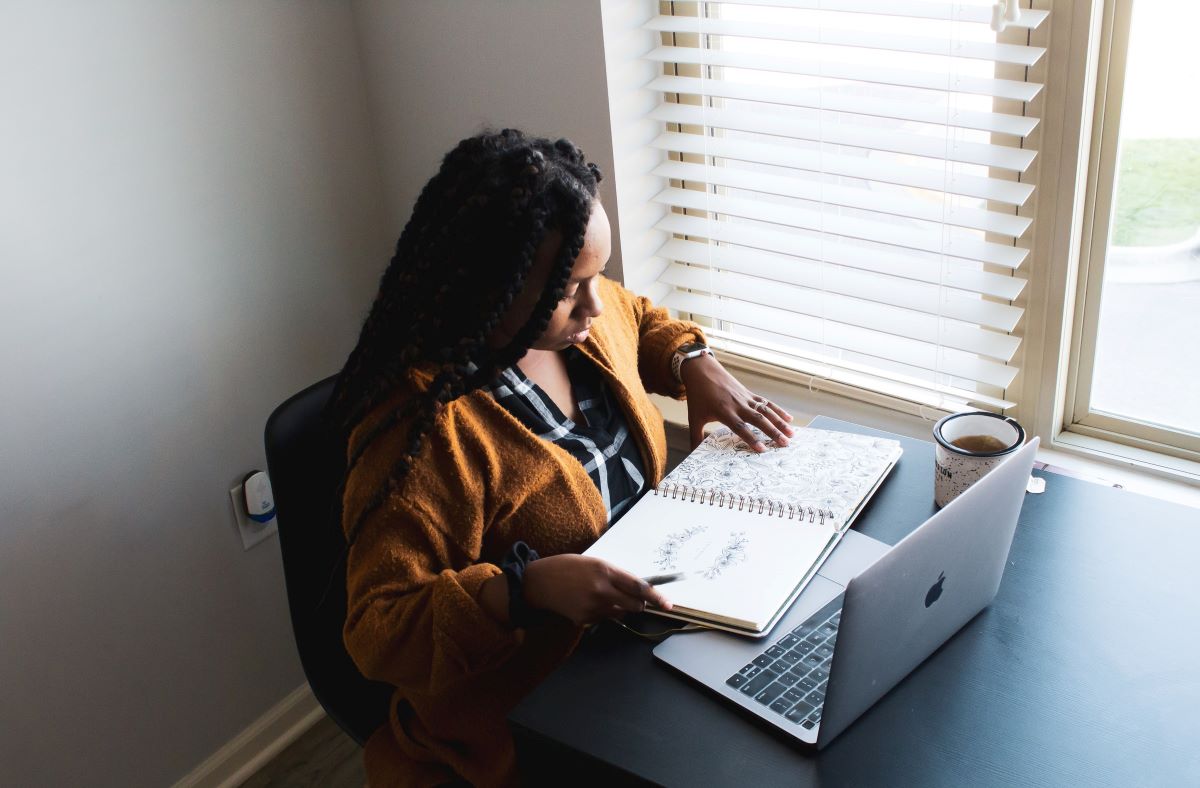There may be advantages to working from home, but it can take a toll on your mental health. We know stress can be a trigger for Hidradenitis Suppurativa flare-ups. So, it’s fair to say when your mind is stressed, so is your body.
So, how can we manage our mental health and flare-ups in the new normal? Mostly, it’s about looking after ourselves. In some cases, we can keep the habits we had in the workplace. But in other circumstances, we need to make changes. Today we will talk about some old and new strategies to mind ourselves while working from home.
Take breaks
We know HS and mental health challenges go together. Pandemics and stress also go hand in hand. Therefore, it has never been more essential for us to take our breaks.
But there is some evidence that many of us are not taking our breaks while working from home. This could be because there may be less structure working from home. Or that there’s no longer a separation of home and work. It may be that we are juggling work and chronic illness.

If you work at a desk, stretch your legs every half hour or so. At lunchtime step away from the desk. Eat something, take a walk, or read. When it’s time to log off in the evening do. Don’t work into the night (unless you work nightshifts) Your body and mind need rest.
Use Video Calls for more than work
Lots of people say they are fatigued by video calls. Maybe this is in part because we associate them with work.

How many of you are still using video platforms to talk to friends? This is something I stopped doing last summer. But I recently started again, and you know what, I have fun. We know that connecting with the people we love is great for our mental health. And right now, meeting in person is not possible. So, once a week set up a call with some friends.
Stay Connected to your Medical Professionals.
HS flares can get infected. So, you may need to see a doctor, which right now is scary. Many, if not most doctors are taking calls from patients and assessing them by phone. Don’t avoid getting medical attention if you need it.
It may be the case that your consultations with specialists have been postponed. But that won’t be forever. Keep a record of what is happening with your condition and keep your doctors informed.
Protecting yourself from Covid-19 is important. But so is looking after your wounds. So, reach out if you need help and follow your doctor’s advice. Oh, and don’t put it off because you have too much work to do at home.
Get outside
Make sure you get outside. Exercise is great for your mind. It releases happy chemicals and helps fight stress. It’s also a great way to get away from your desk.

Some of us are lucky to live in the countryside or on the beach. But if you live in an urban area, make the most of your surroundings. It’s not about sights but fresh air and stretching your legs. You should be working toward 30 minutes of exercise a day, 5 days a week. Walking is a great way to do that.
Write it Down
I know, you write all day. You write emails, maybe reports. What I’m suggesting is to write for you. Living in a pandemic is so difficult. We are all confined and going through a lot. And on top of that, you are managing HS.
Write it down. Journaling can help people better manage difficult situations Additionally, writing is a great way to reflect and plan for the future. You may have less social support right now. Journals are an excellent outlet for your emotions.

Over to You
This is not an exhaustive list. You all have different coping strategies. I know this because you manage your HS, you work, and you may have children. Having to manage all of that in a confined space is hard. But you’ve got this!
Sometimes when we juggle a lot of things, we drop a ball or two. That may be eating at your desk. Or it could be exercising less. But small things add up and prioritising them can help you get through tough times.
So, if you are struggling right now try something from this list and see if it helps. Try prioritising yourself. It will make you more productive and better able to cope in the long run.
About the Author

Shannon Sweeney is MA student in Community Research & Journalism from Ireland. She is also living with HS and has a keen interest in lifestyle, wellbeing and hidradenitis suppurativa.


